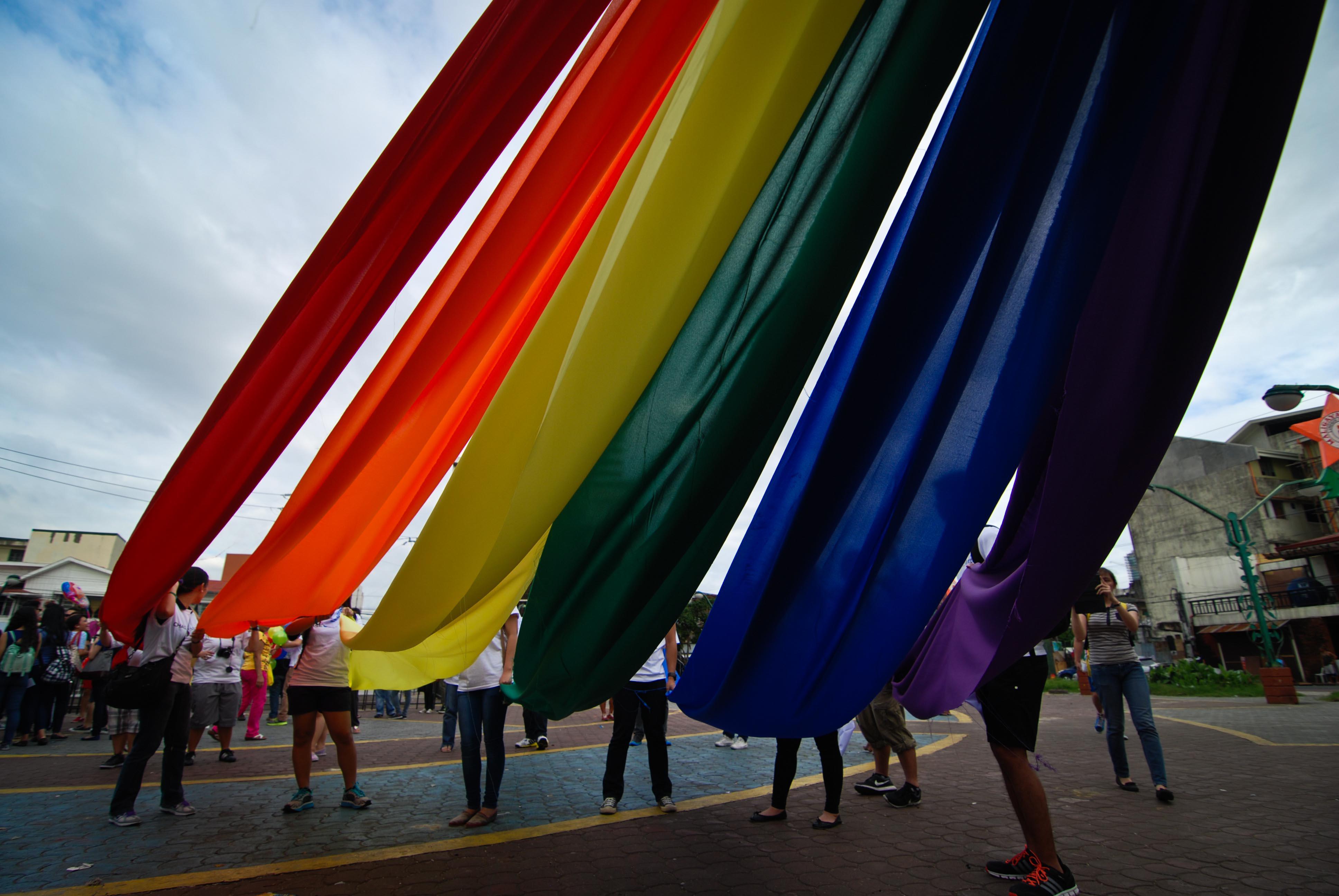The heady era of the post-Windsor winning streak may soon come to a crashing halt.
That’s the message that Judge Jeffrey Sutton seemed to telegraph during Wednesday’s gay marriage oral arguments at the 6th Circuit. Sutton is the swing vote on the circuit panel: To his left is Judge Martha Craig Daughtrey, a Clinton appointee and staunch liberal; to his right is Judge Deborah Cook, a thoroughly right-wing George W. Bush appointee. Sutton, also placed on the bench by Bush, is a genuine conservative and a former clerk of one Justice Antonin Scalia. (Scalia calls him “one of the very best law clerks I ever had.”) But ever since Sutton upheld Obamacare in 2011, he’s been lauded on the left for his judicial independence.
Will that independence lead Sutton to strike down gay marriage bans in Michigan, Kentucky, Ohio, and Tennessee? Or will his conservatism push him to uphold the states’ laws? Based on Wednesday’s arguments, marriage advocates have good reason to worry. Unlike Cook, who clearly viewed gay marriage prohibitions as a rational state policy, Sutton seemed to scowl at the prospect of excluding an entire class of people from marriage. But unlike Daughtrey—who fiercely questioned the state’s interest in discriminating against gays at every turn—Sutton appeared exceedingly hesitant to bring gay marriage to America through judicial fiat.
Sutton has two hang-ups. The first is not terribly unreasonable. In a 1972 case called Baker v. Nelson, the Supreme Court dismissed a challenge to Minnesota’s gay marriage ban “for want of a substantial federal question”—that is to say, the court didn’t see a constitutional flaw in the ban. The case was decided through a summary affirmance of a lower court ruling, meaning the justices didn’t hear arguments or write a real opinion. But a summary affirmance is generally considered to be binding precedent on lower courts.
You might think that Justice Anthony Kennedy would confront Baker—the only Supreme Court precedent to deal directly with the merits of state gay marriage bans—when he overturned DOMA. But instead, he ignored it, perhaps in an effort to leave the whole question of state-level bans for another day. Every district court that has since struck down these bans worked around Baker by citing a somewhat ambiguous loophole: A summary affirmance might not be controlling precedent when it has since been undermined by “doctrinal developments.”
The question for Sutton, then, is simple: Does the trio of great gay rights cases (Romer, Lawrence, and Windsor) render Baker’s holding completely moot? Or does Baker remain binding precedent? Sutton seemed to lean toward keeping Baker on life support for now and letting the Supreme Court pull the plug, noting:
Even when you see one line of cases crumbling, lower courts aren’t allowed to infer, and anticipatorily overrule, this other line of cases. So as a matter of hierarchy, aren’t we stuck with Baker?
But then Sutton seemed to walk back his statement, musing that “the legal reasoning in other cases”—Romer, Lawrence, and especially Windsor—were “totally inconsistent with Baker.” At the end of his colloquy on the topic, he seemed a little stumped, and more than a little frustrated.
Even if Sutton moves beyond the Baker hump, however, he’s got another, more profound hang-up: He wants to leave gay marriage to the democratic process. It was probably this respect for legislative authority and separation of powers that led Sutton to uphold Obamacare—but here it seemed to be leading him to a more conservative conclusion. At one rather awkward point, Sutton launched into a strange monologue about the gay rights movement’s tactics, one that seemed barely tethered to the merits of the case at hand:
I would’ve thought the best way to get respect and dignity is through the democratic process. Forcing one’s neighbors, co-employees, friends, to recognize that these marriages, the status deserves the same respect as the status in a heterosexual couple. … If the goal is to change hearts and minds … isn’t it worth the expense? Don’t you think you’re more likely to change hearts and minds through the democratic process than you are through a decision by five justices of the U.S. Supreme Court?
These words should be very unnerving for supporters of same-sex marriage. Don’t come to us with your demands for equal protection and fundamental rights, Sutton implied; take your case to the voters instead. Being a legal stranger to your spouse and child isn’t so bad, he suggests, that you need to turn to the federal courts for relief. This reasoning stands in stark contrast to Kennedy’s Windsor opinion, which explained that marriage bans “demean” gay couples and “humiliate” their children. In Kennedy’s eyes, gay marriage bans “degrade” gay people. In Sutton’s eyes, they merely annoy them.
There are, of course, a slew of other legal issues for the court to sift through: whether gay people are a protected class subject to heightened judicial scrutiny; whether marriage is a fundamental right, regardless of gender; and whether there’s even a rational basis for denying gay couples a marriage certificate. But on Wednesday, all of these questions took a backseat to Sutton’s ruminations on Baker and democracy. If Sutton can grasp the real, immediate harms these bans inflict on gay people, he’ll surely find a way to move past these roadblocks. But little from Wednesday’s arguments gave us reason to be optimistic.
